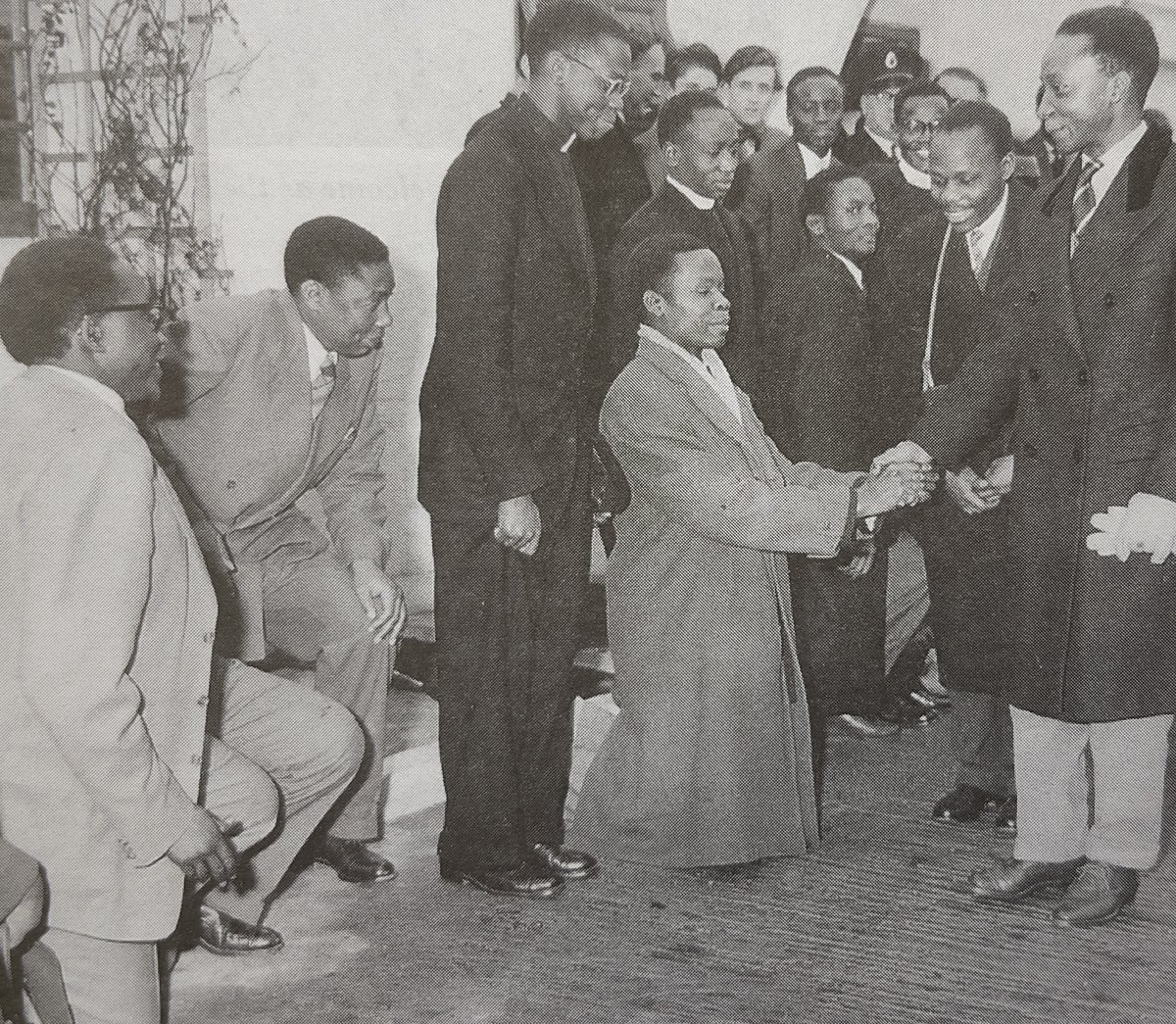
On reading Abraham Lincoln in Africa. We need more works on how Lincoln's biography was deployed in African political thought throughout the 1900s. Perhaps an edited volume? Any interest? In 1959, the UG constitutional thinker EMK Mulira was exiled in Gulu for his role 1/11 

in the year’s boycotts. During his time in exile, Mulira experienced numerous dreams and revelations. In one instance, God appeared to him “clearly and unmistakably in Luganda,” Kitawo ye mugagga asinga abagagga bonna” (literally, “your father [God] is the rich one 2/11
who surpasses all other rich people” i.e. “your father is the richest person”).’ Abraham Lincoln also appeared to Mulira in several visions. He talked at length about one vision before the Graduate Fellowship Conference in Limuru, Kenya, 1968: “I lived in political 3/11
deportation in the town of Gulu in Northern Uganda. One night I went to bed with a heavy heart because of a letter I had received from my wife giving me alarming news, which was tantamount to a break up of all I had done. When I woke up at about 5:00 a.m. the 4/11
following morning, I was still brooding over this matter. Then lo! I saw a vision of Abraham Lincoln in his full stature standing beside my bed and bending a little towards me, and a voice said to me clearly in the following words, “Anyone who kills A. Lincoln kills God in 5/11
action.” Lincoln disappeared and my worry disappeared, too. I never brooded over the matter again but gained wonderful peace of mind from that moment.” 6/11
Mulira was not unique. In a 1960 editorial, Halonyere Wamalwa wrote at length on the Asian question in Uganda. He was deeply worried that the DP was prioritizing Asian political priorities over Ugandans. In response, Wamalwa asserted: 7/11
“When he was trying to preserve the union of the United States during the civil war Abraham Lincoln's opponents labelled him as America's national dictator. He died honourably for the cause of preserving his nation. And today Lincoln is nationally remembered, not in America 8/11
but in the world over as the frontier boy who had risen from poverty and ignorance and illiteracy to become one of the greatest, the most profound and merciful leaders
the world has ever known.” It was a call to prioritize Black, Ugandan interests 9/11
the world has ever known.” It was a call to prioritize Black, Ugandan interests 9/11
above all others. By contrast, in 1962, Daudi Ocheng talked about Abraham Lincoln before @Rotary. Before the audience, Ocheng argued for the importance of the Kabaka in national politics. He compared Kabaka Muteesa I to Abraham Lincoln, arguing that 10/11
just as Americans had created a statue for Lincoln, Ugandans should create one for Kabaka Muteesa I. There were many ways to read Abraham Lincoln in late colonial Uganda. ***The opening image is of Lincoln’s Second Inauguration @librarycongress. 11/11
@CUPAcademic @PrincetonUPress @boydellbrewer @UChicagoPress @HarvardUPLondon @VintageAnchor @simonschuster @PenguinUKBooks
• • •
Missing some Tweet in this thread? You can try to
force a refresh












